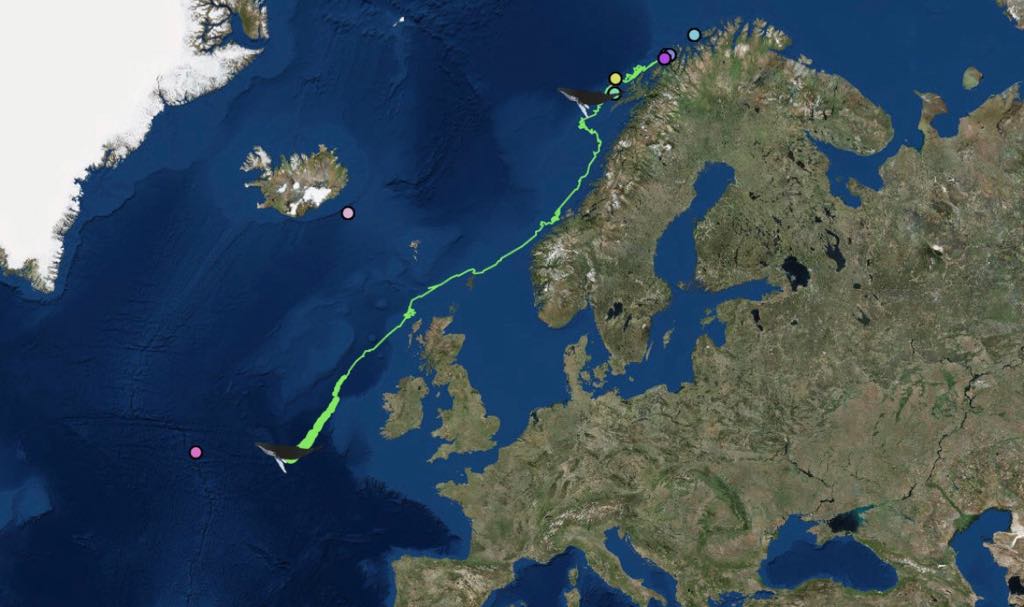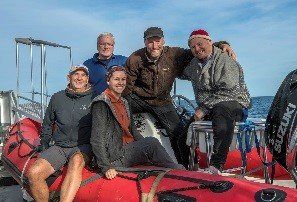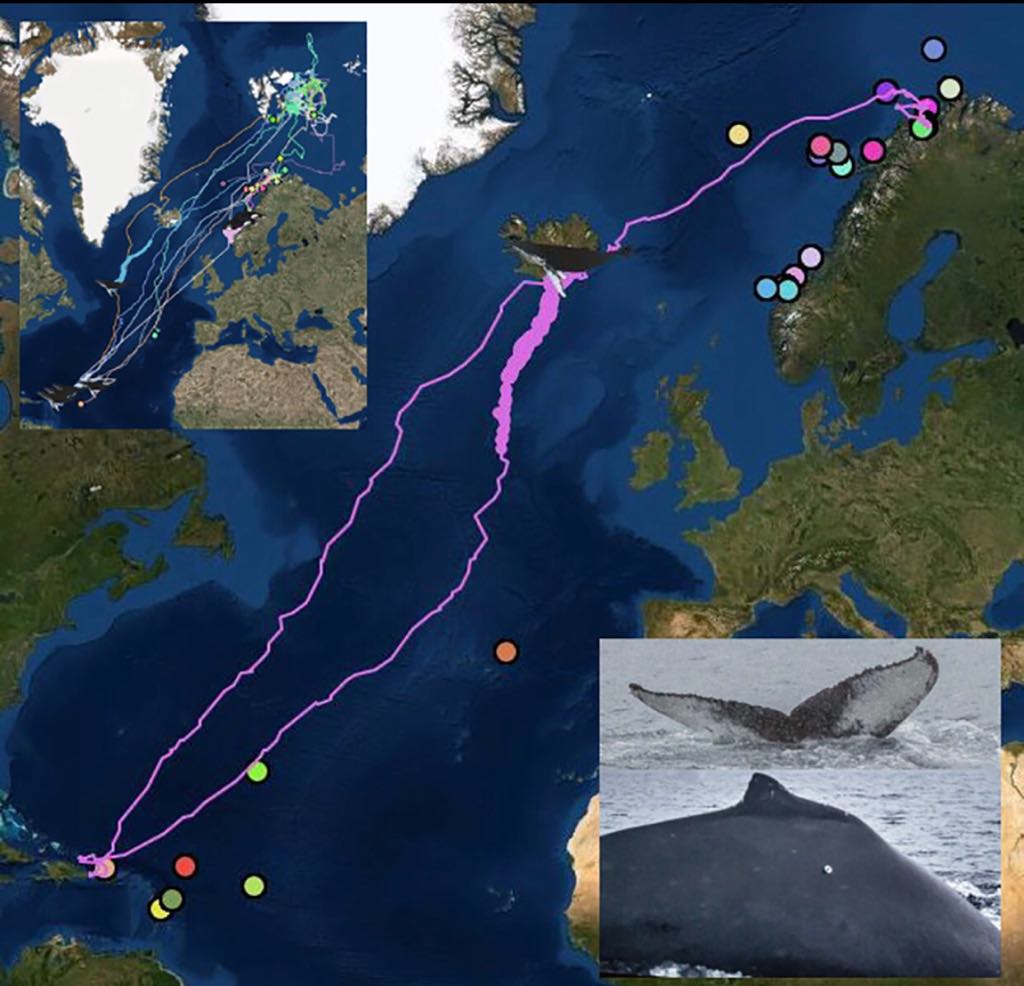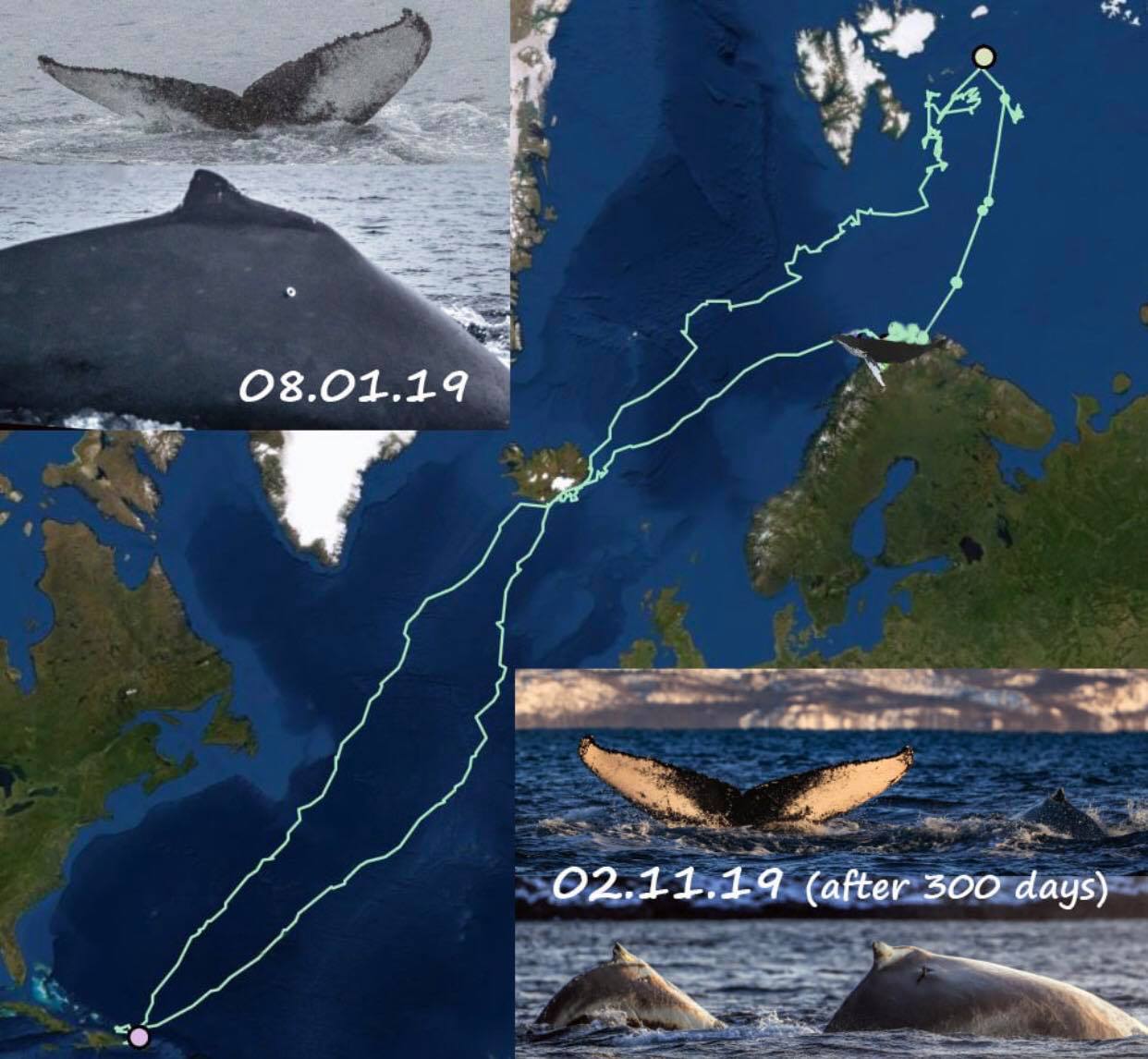'Whaletrack' project tracks humpback whales all the way from Arctic feeding grounds and to tropical breeding areas and back again!
Researchers at the Arctic University of Norway's (UiT) "Whaletrack" project have successfully satellite tagged humpback whales and tracked their migratory movements from Arctic feeding grounds to tropical summer breeding areas and back again and the results are astonishing!
Satellite tagged humpback whale comes close to Ireland. Photo source: O.R.C.Ireland screenshot of Whaletrack project: Arctic University of Norway. July 2019.
For the last few years, the Arctic University of Norways's "Whaletrack" project has been mapping the various aspects of whale migration and behaviour of humpback whales ( Megaptera
novaengliae
) and killer whales ( Orcinus
orca
) during and after their arrival to the coast and fjords of Northern Norway. In recent years, spring spawning herring have attracted overwintering whales to the area in an event described as a "whale feast", providing excellent opportunity for a research team led by Professor Audun Richardsen to conduct important research using satellite tagging, photo Identification and biopsy sampling.
Rikardsen and his research team satellite tagged ten humpback whales in the Barents Sea in September 2018 during a research expedition organised by the Institute for Marine Research. You can follow these tagged whale's migrations in real-time here.
The research team that attended the Barents Sea research cruse in September 2018. From left to right: Kjell-Arne Fagerheim (IMR), Nils Øien (IMR), Lisa Kettemer (UiT), Audun Rikardsen (UiT) and Lars Kleivane (Lkarts).
"Last year one of the whales only stayed in the Caribbean for a couple of hours, following a three month migration, before heading back north. Maybe it was happy with just a "quicky"," says professor Audun Rikardsen.
Up to six humpback whales were successfully tracked all the way to their breeding grounds off the Caribbean island Guadeloupe, where they arrive around March every year. Some come to look for their "soul-mates" while others are just looking for a "one night stand", or to give brith and rear their newborn calves.
The satellite tagging is revealing many insights into whales migratory behaviour in great detail and already the data has shown that humpbacks are using a greater area than previously estimated, with one whale venturing into Russian waters, another heading to Newfoundland, Canada and another that detoured around Iceland before heading south.
Even better, one humpback whale which was tagged in waters off Tromso, Norway was noted to come into Irish waters in 2017, passing by the south-west coast.
Now a whale called "Theresia" (83278) who was tagged by Rckadsen and his team last year has provided set the record for longest continuous track-line of a humpback whale recorded for the first time. It was seen north of Bear Island (75° North) having stopped after six months on the move. You can follow Theresia's movements live here :
Humpback whale 83278's photo I.D. of fluke and dorsal fin with longest ever recorded trick-line to and from breeding and feeding grounds. Source: Audun Rickardsen Photoraphy Facebook.
The most recent update on this individual whale is that after 300 days of tracking, Prof. Rickardsen met 83278 again in the same place he first satellite tagged her back in January. The great news is, is not only has this whale returned and been tracked full circle, it has also returned with a new calf, having given birth in the Caribbean back in May. All the way from the Dominican Republic, via Iceland and then the northern Barents Sea up to 78 degree north, this whale has guided her new calf. Along the way she has taught her calf to feed on capelin during late summer and autumn and now she is finally back in the North Norwegian fjord (Kvænangen) teaching her calf to forage on herring.
Humpback whale 83278 has returned to Northern Norway with a calf. Date: 2nd of November 2019. Photo source: Audun Rickardesen Facebook.
- © Ocean Research & Conservation Ireland (ORCireland) and www.orcireland.ie , est. 2017. Unauthorized use and/or duplication of this material without express and written permission from this site’s author and/or owner is strictly prohibited. Excerpts and links may be used, provided that full and clear credit is given to Ocean Research & Conservation Ireland and www.orcireland.ie with appropriate and specific direction to the original content.
SHARE THIS ARTICLE


















